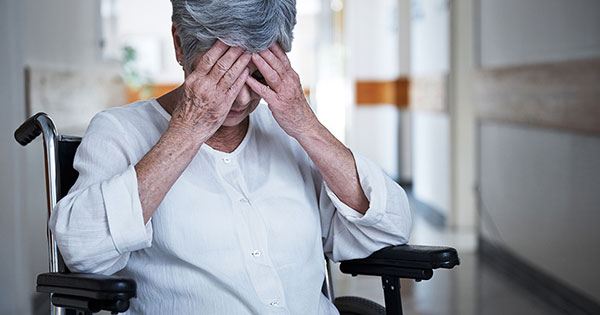Elder abuse is defined as a knowing, deliberate, or negligent act committed by a person or persons in a position of trust or authority that causes harm or risk of harm to an elderly person.
Elder abuse has many forms. It can be physical including sexual abuse, mental or emotional harm, financial and neglect, or any combination thereof. Examples of elder abuse include intimidation, humiliation, exploitation, bullying, physical assault, sexual assault, overmedication or withholding needed medication, denial or withholding vital care, denial of physical aids, hearing aids, eyeglasses, dentures, invasion or denial of privacy, denial of freedom, denial of access to visitors, denial of spiritual service, neglect or self-neglect.
Elder neglect is a form of abuse and it is defined as an intentional or unintentional failure of a caregiver, hospital personnel or medical professional to meet the needs of an elderly person who cannot care for themselves. Examples of neglect include failure to provide basic or personal care needs, including adequate food, water, shelter, clothing, health care, required medications, physical therapy, personal care, hygiene, protection, emotional care, social contact, safety precaution, and other necessities for a reasonable quality of life. Neglect is also abandonment, undue confinement, lack of attention, lack of respect for an elderly’s personal values, beliefs, inherent dignity, and violation of any other seniors’ basic civil and human rights.
While elder abuse is intentional, elder neglect can be an accidental or intentional act.
Self-neglect is the behaviour of an elderly that threatens his or her own health or safety and it makes a person more vulnerable to abuse or it is a negative outcome of elder abuse or neglect. Self-neglect is present when an older adult refuses or fails to provide himself or herself with adequate food, water, clothing, shelter, personal hygiene, medication, and safety precautions. Certain conditions may contribute to self-neglect like addictions, mental health, or poverty.
Elder abuse and neglect usually take place where the seniors live: in domestic or institutional settings, especially long-term care facilities or hospitals, even elder abuse can take place in public places or community environments. Elderly are usually abused by family members, often adult children or grandchildren, spouse or partner, relatives, friends, neighbours, scammers, paid caregivers, unethical medical professionals (doctors, nurses), hospital and institutional care personnel, or other professional care providers.
Many victims of elder abuse are the most vulnerable and frail seniors who cannot help themselves and depend on others to meet their most basic needs. Both abuse and neglect are very harmful and can have long-term effects on the health and well-being of the elderly. The quality of life of an elderly who experience abuse or neglect is put at high risks, as that can lead them into reclusiveness, invisibility, anxiety, feelings of helplessness or worthlessness, depression, isolation and increased psychological distress. Negative consequences of abuse and neglect can also be wrongful or premature death, malnutrition, dehydration, medication mistake, injuries, health problems, need for hospitalization, unsanitary living conditions, unkempt appearance, or poor elderly hygiene.
Research suggests that older adults who have been subjected to abuse or neglect face a greater risk of premature death as compared to those who have not been abused, even in the absence of chronic conditions or life-threatening disease.
Elder abuse is a serious health and human rights issue. No one should be subjected to insulting, humiliating or neglectful behaviour. Older adults deserve dignity and respect, so It is imperative that we all are aware that it is happening and that we all take responsibility to prevent elder abuse and neglect.

